
Teenagers on the Isle of Wight and across the UK are getting their A-level and AS-level results today after exams were cancelled due to COVID-19.
Having been out of school since the middle of March due to the coronavirus lockdown, pupils' grades have been given by their teachers and then each school's overall grades have been assessed by the exams regulator Ofqual.
Many pupils are concerned they will have been graded unfairly as they have not been able to sit their exams, but Ofqual said teachers have worked very hard to be fair and those marks have been moderated by Ofqual, as they are every year.
The difference this time is that schools have been asked to rank each student relative to others who teachers judge would have got the same grade, for example, ranking all those in a year who got a B in a subject from the most secure to the least secure.
In England, students have been assured they can pick their best results from their calculated grade, their mock results, or exams in the autumn, if they decide to take them then.
Students in Wales and Northern Ireland will not be allowed to use their mock results.
For those who think they have been graded incorrectly, these are the options:
Appeal
Ofqual has warned that appealing against a grade will affect other students from the same school because of the rank order system.
It said if one student successfully appealed against their position in the rank order it would push another student down the ranking and they would then need to be allowed to appeal.
Students can ask the school to check if it made a mistake when submitting the grade or position in the rank order, and if it has then it can ask the exam board to correct it.
A school can appeal to the exam board if it believes it used the wrong data to calculate the grade, or the board made a mistake when it published the grade.
The school can appeal if it believes its historical data used for standardisation was not a reliable basis for predicting this year's results.
This can be if there's been a significant change in the demographic make-up, a monumental event such as a fire affecting one year's results or where a school has evidence that results this year were likely to show a very different pattern of grades to previous years.
A school can appeal if it is concerned about its data affecting individual high-ability students who were expected to receive results that are "out of line" with the school's historical results.
If a pupil believes the school has made an error in its grade judgement the school should explain how it came to that grade and what evidence it relied on.
Appeal deadline
UCAS, the university admissions body, has agreed to hold open places until 7 September if a school has submitted an appeal.
Clearing
The traditional path to get into university if you don't get the grades you need for the course you want is open as usual.
Clearing is how universities and colleges fill places they still have. UCAS is the place to start and, as ever, the advice is to be quick and decisive with whatever you choose to do as places go fast.
Complaint about bias, discrimination or malpractice/maladministration
If a pupil is concerned the school's assessment grade or rank order position is wrong because it was influenced by something other than academic performance they can make an official complaint.
Ofqual says it expects this to be rare but if a pupil believes this has happened - not just because they have a lower grade - this could be a form of malpractice or maladministration.
Pupils should discuss this with the school first and if the pupil feels their concerns have not been addressed they can raise them with the relevant exam board as an allegation - not an appeal so there would not be the same deadlines.
If the pupil has evidence and is concerned about raising the issue with the school first, then you can go to the exam board first.
If the exam board decides it has a reasonable basis to suspect malpractice or maladministration, it will investigate by reviewing the pupil's academic record, talk to the headteacher and teacher allegedly responsible.
They may look at historical data and will allow the teacher to explain if they do not agree with the allegation before leaving the grade or changing it.
Autumn exams
Pupils who entered this summer's exams will be able to re-take any of their AS and A-level exams from 5-23 October, with the entry deadline on 4 September.
They will be able to use the higher of the two grades.
:: Listen to the Daily podcast on Apple Podcasts, Google Podcasts, Spotify, Spreaker
Traineeships
In light of the economic impact of coronavirus, the programme in England is being expanded. There will be 30,000 new places and employers will be given £1,000 for each work experience placement they offer to people aged 16-24.
England's scheme will involve £111m of government funding, while similar schemes in Scotland, Wales and Northern Ireland will receive £21m.
Traineeships provide work preparation training, the chance to improve literacy and numeracy skills and the work experience you need to get an apprenticeship or other job. They last from six weeks to six months.
Apprenticeships
Just as job numbers have suffered during the pandemic, so have apprenticeships, with the number of starts declining sharply.
But they remain a great chance to work while learning across many industries. There are no student fees - your training costs are funded by the government and your employer.
From Sky News.

 Councillor Coy On Isle Of Wight Social Housing
Councillor Coy On Isle Of Wight Social Housing
 Warning For Islanders Selling Vehicles To Be 'Scam Aware'
Warning For Islanders Selling Vehicles To Be 'Scam Aware'
 Bus Fares Set To Rise Following Council Meeting
Bus Fares Set To Rise Following Council Meeting
 Small Business Support Proposal Passed By Isle Of Wight Council
Small Business Support Proposal Passed By Isle Of Wight Council
 Five-Year Isle Of Wight Area Of Outstanding Natural Beauty Plan Unanimously Approved
Five-Year Isle Of Wight Area Of Outstanding Natural Beauty Plan Unanimously Approved
 More Islanders Cross The Solent With Wightlink’s Discounted Fares For NHS Appointments
More Islanders Cross The Solent With Wightlink’s Discounted Fares For NHS Appointments
 Hampshire And Isle Of Wight Air Ambulance Funds Defibrillators For The Community
Hampshire And Isle Of Wight Air Ambulance Funds Defibrillators For The Community
 Isle Of Wight Council Budget Pressures Likely To Continue Following Autumn Statement
Isle Of Wight Council Budget Pressures Likely To Continue Following Autumn Statement
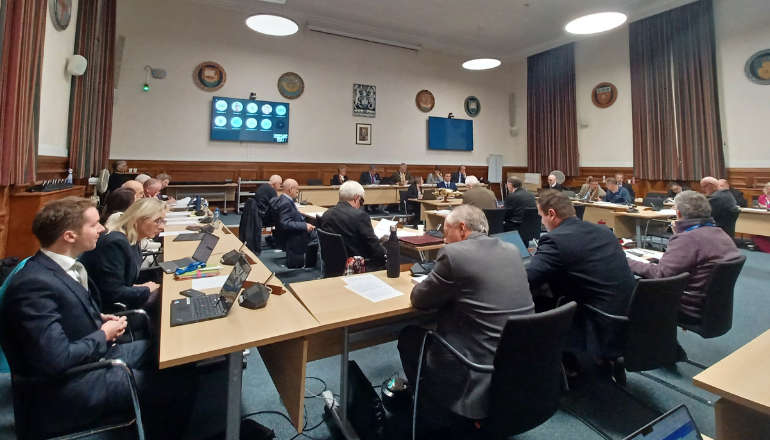 Council Approves Support Package To Help Islanders On Low Incomes
Council Approves Support Package To Help Islanders On Low Incomes
 Isle Of Wight Councillor In Mental Health Priority Motion
Isle Of Wight Councillor In Mental Health Priority Motion
 Bird Keepers Urged To Remain Vigilant Following Increased Avian Influenza Risk
Bird Keepers Urged To Remain Vigilant Following Increased Avian Influenza Risk
 Island Pupils Receive Lesson In Road Safety That Could Save Lives
Island Pupils Receive Lesson In Road Safety That Could Save Lives
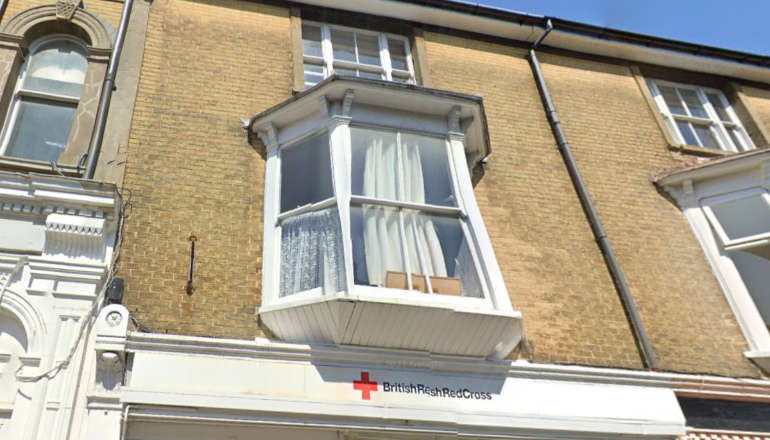 New Shanklin Flats Given Green Light
New Shanklin Flats Given Green Light
 Joe Robertson Appointed Parliamentary Private Secretary For Shadow Culture, Media And Sport
Joe Robertson Appointed Parliamentary Private Secretary For Shadow Culture, Media And Sport
 Shanklin Company Making Nuclear Waste Sorting Safer, Greener And Cheaper
Shanklin Company Making Nuclear Waste Sorting Safer, Greener And Cheaper
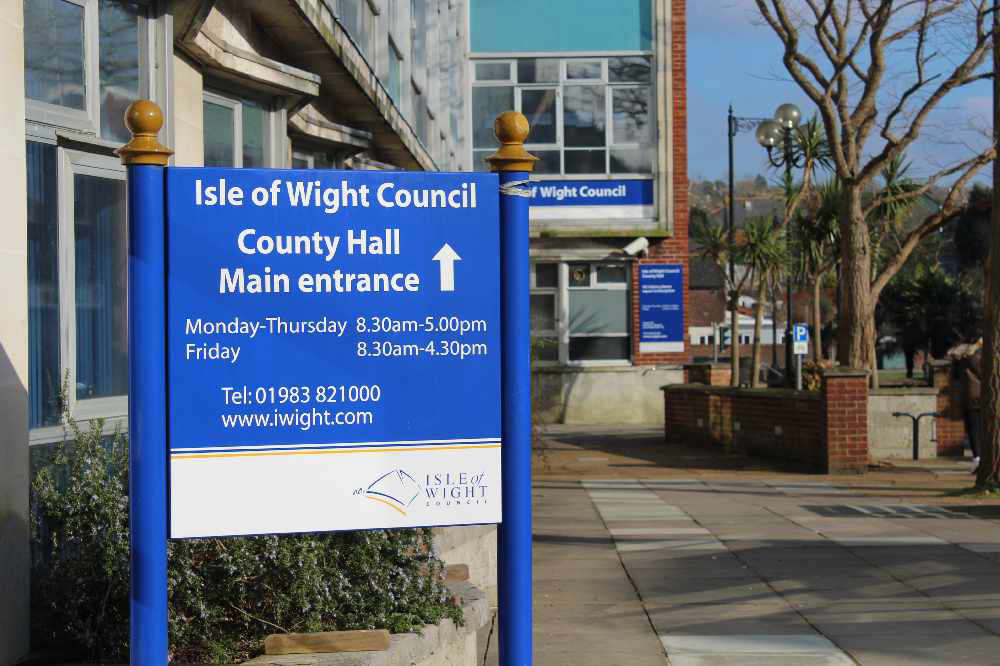 Five-Year Isle Of Wight Landscape Plan Decision On Horizon
Five-Year Isle Of Wight Landscape Plan Decision On Horizon
 Help Sought For Isle Of Wight's Struggling Small Businesses
Help Sought For Isle Of Wight's Struggling Small Businesses
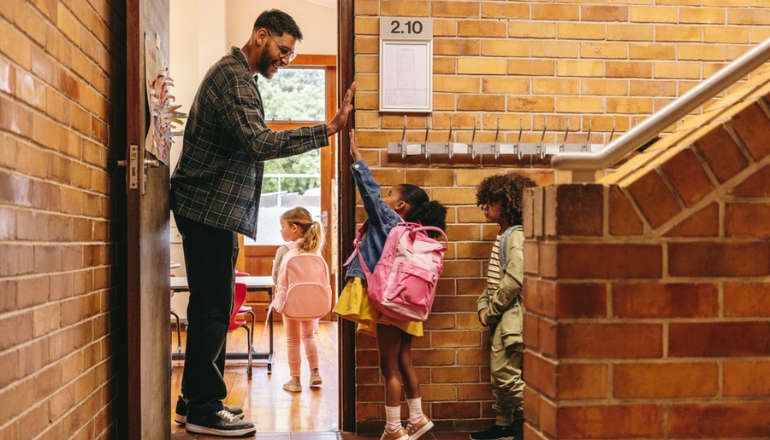 Primary School Admissions For September 2025 Now Open
Primary School Admissions For September 2025 Now Open
 Island Families Invited To Take Tour Of St Mary's Special Care Baby Unit
Island Families Invited To Take Tour Of St Mary's Special Care Baby Unit
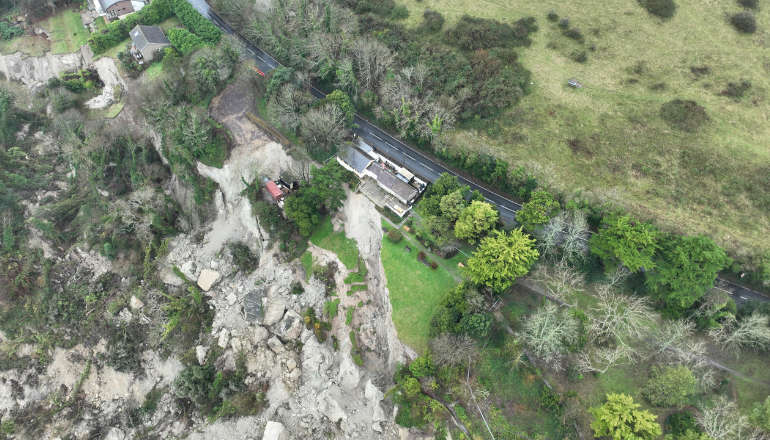 Work To Sink Three Boreholes At Leeson Road Due To Finish This Week
Work To Sink Three Boreholes At Leeson Road Due To Finish This Week


